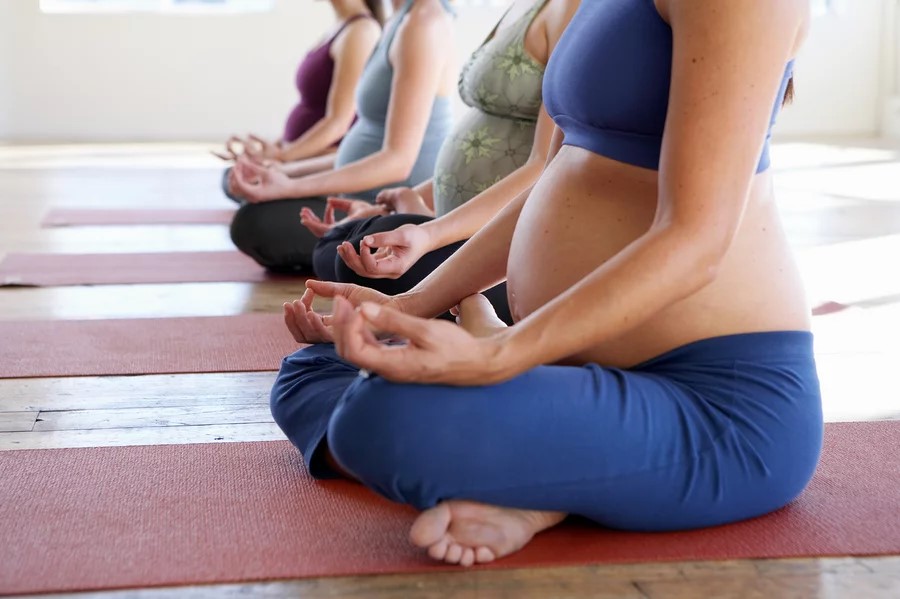Physical health

Key information on this page includes:
Exercising during pregnancy
Exercising during pregnancy is great for both you and your baby. It will help prepare your body for labour as well as helping maintain healthy weight as your body and baby grow.
Doing around 150 minutes of exercise per week (half an hour a day) has lots of great benefits for expecting mums. You don’t have to do it all at once, you can break it up throughout the day, but it is important for both yourself and your baby to stay healthy. Remember to listen to your body and only do what feels right for you, if you are not used to doing lots of exercise you could start with doing 10 minutes at a time, and work your way up to 30 minutes a day at your own pace.
There are a number of great exercises that you can do during pregnancy, for example:
- Walking – A great form of exercise, it is free and you can include it in your everyday life.
- Swimming – Swimming is great exercise for you because being in the water will support weight of your baby and make you feel comfortable.
- Running – Running while pregnant is fine as long as you are an experienced runner, it's not a good idea to start now.
- Yoga – Yoga is very relaxing and will help you ease the tension in your body with gentle stretches and breathing.
- Pelvic floor and abdominal exercises – these exercises will help strengthen your joints and muscles, but try and avoid doing anything that will have you lying on your back for longer than a few minutes, especially after 16 weeks.
Common illnesses
While you are pregnant, it is possible that you will experience one of more types of illness. Stay in touch with your GP and midwife so you can be properly looked after, some common illnesses you may experience while pregnant include:
- Morning sickness.
- Bleeding gums.
- Urine infections.
- Vaginal infections - e.g. thrush.
- Chloasma (darkened skin or brown patches on your face).
- Indigestion or heartburn.
- Constipation.
Pregnancy and medication
When you're pregnant the medicines you take can affect your baby. Always check with your pharmacist, midwife or doctor before taking any medicines, even painkillers.
Make sure to find out how a medicine might affect your baby, whether it's prescribed by a doctor or bought from a shop.
To know which medicines are safe during pregnancy, you can visit the bumps website.
If you're planning to have a baby or are already pregnant:
- Talk to your doctor if you take regular medicine.
- Check with your doctor before taking any prescribed or over-the-counter medicines.
- Let your healthcare professional know you're pregnant before any prescription or treatment.
For herbal, homeopathic or aromatherapy remedies:
- Not all "natural" remedies are safe during pregnancy.
- Some products may be low quality or contain harmful substances.
- Inform your midwife, doctor or pharmacist about any remedies you are considering prior to using them.
- Check for accreditation on remedies from organisations like the Complementary and Natural Healthcare Council and the Federation of Holistic Therapists.
Remember, these remedies don't replace regular antenatal care. Make sure you attend your scheduled check-ups during pregnancy.
Things to look out for and get help for as soon as possible
Listen to your body, don't do more exercise than you can handle.
If you think something is wrong, your GP and Midwife are the best people to go to for help. It could be nothing, but it's better to be sure
Look out for:
- Severe nausea or vomiting.
- Heavy flows of blood from your vagina.
- Pain in your abdomen.
- Clear fluid leaking from your vagina.
- Harsh fevers of chills.
- Shortness of breath or a very fast heart.
- Pain or swelling in one leg.
Where to go for help and support
Calling 111 can help you figure out what to do next if you think something might be wrong. If something is seriously wrong and you need urgent medical attention, call 999.
Visiting your GP or Midwife for check-ups is good, they will tell you how you and your baby are doing, when your baby is due and can give advice on what you could do to support yourself and your baby during pregnancy.
Local activities
Breastfeeding network support groups (welcome mums to be).
- Shelton Family Hub (Thomas Boughey Family Hub), ST4 2DQ Wednesdays 10am – 11:30am
- Bentilee Family Hub, ST2 0HP Mondays 12:30pm – 2pm
- Westfield Family Hub, ST3 4RF Fridays 10am – 11:30am
- Tunstall Family Hub, ST6 5TP every other Wednesday 12:30pm - 2pm
Online workouts for pregnany women and new mums: This mum moves
For more information, see our events page.
Stoke-on-Trent Family Hub has partnered with the Solihull Approach to offer free access to expertly designed online courses for parents, carers, grandparents and teens living in the region. Click here to sign up and to access the course you need: In our place - Stoke-on-Trent.
